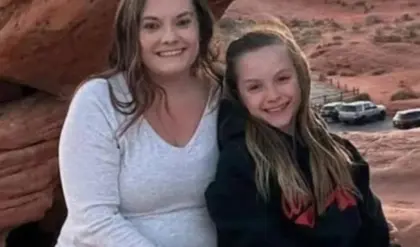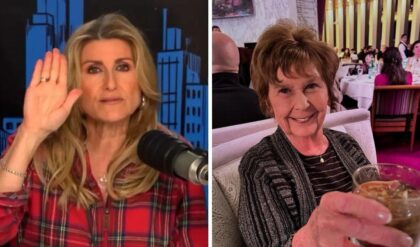We all have our own gateway formative blockbuster. For me, first contact came during the hot summer of 1997 when a summer-camp trip to the movies sent me down a wormhole with Jodie Foster. “Contact,” Robert Zemeckis’s sprawling, melancholy movie about Ellie Arroway (Foster), the scientist who first detects a signal from another world, may not be a box-office champ or a pure classic. But the movie, which came out 20 years ago today, set a marker for what smart, emotionally compelling science fiction can look like. And thinking back on it as a professional critic, I see that “Contact” is one of the Rosetta stones that helps me understand why I love what I love today.

In “Contact,” Ellie (played as a little girl by Jena Malone) grows up with a father who teaches her to monitor shortwave radio frequencies and nurtures her love of the stars before dying, leaving her an orphan at age 9. As an adult, she becomes a talented scientist whose peers believe she is wasting her time and energy on the search for extraterrestrial intelligence. But after she receives funding from a reclusive billionaire (John Hurt), Ellie discovers unambiguous evidence that someone is out there, and decodes the message they have sent, which turns out to be schematics for a mysterious machine.
Unlike in most movies about contact with aliens, the extraterrestrials in “Contact” are almost peripheral. It’s the conflicts between humans that matter.
Ellie’s opponents are people like David Drumlin (Tom Skerritt), who favors applied science and pulls her funding in an effort to push her onto what he sees as an appropriate career path; national security adviser Michael Kitz (James Woods), who wants to militarize the work on Ellie’s discovery; and Richard Rank (Rob Lowe, weaponizing his handsomeness), the leader of a Christian Coalition-type organization who tries to stymie Ellie’s work on the grounds that aliens might not share human morality. The things that divide them are not how seriously they take an obvious alien threat, the tension in so many first-contact movies, but what counts as a worthy goal in science, who should control major advances and — once the machine turns out to be a transport — who should represent humanity to the stars. The big explosion, when it comes, is not the result of an alien attack, but a suicide bomber who believes we should stay here on Earth.

It’s not so much the hard science fiction in “Contact” that has stayed with me as the film’s sense of what’s important. What’s most realistic and compelling about the movie is its understated curiosity about how humanity would respond to a discovery of this magnitude. “Contact,” like Kim Stanley Robinson’s “Mars” trilogy, is a sharp argument that by skipping to the most dramatic, conflict-oriented outcome, pop culture is leaving dozens of promising stories on the table. There are more things in our arcane policy debates about heaven and Earth than are dreamt of in action filmmakers’ philosophy.
Ellie herself is a character type that remains relatively rare: a brilliant scientist who is passionate, enthusiastic, occasionally girly. “Contact” is a movie that doesn’t think female characters have to be only one thing.
While the characters in the movie sometimes punish Ellie for being emotional, “Contact” itself never does. Of course it makes sense that she would have strong reactions to the degradation of the scientific research she believes in, or to Drumlin’s tendency to run her down and then claim credit for her work. Her alternately quavering and furious response to the panel that has convened to select the first passenger to another part of the universe doesn’t demonstrate weakness. Instead, Ellie’s response reveals the hypocrisy of Palmer Joss (Matthew McConaughey), who exposes her agnosticism because he wants to keep her safe on Earth, and the scheming of Drumlin, who fakes a piety he doesn’t really feel to outflank her. Foster’s limpid eyes and quivering chin are some of “Contact’s” best special effects.
In keeping with that confident approach to emotion, “Contact” isn’t afraid to be a sweeping romance in which big ideas fuel chemistry. Ellie and Palmer’s meet-cute involves his research on the impact of technology on indigenous communities; the first thing that attracts her to him, beyond McConaughey’s laconic charm, is Palmer’s defense of pure rather than merely applied science. Ideas, particularly Palmer’s conviction that aliens’ first contact should be with someone who believes in God, keep them apart for much of the movie, which is realistic: Ellie would be hopelessly compromised if she threw over her life’s work for the theologian who blocks her from her dearest ambition, even if he is drawling and cute. Palmer’s big romantic gesture is to show up and support Ellie when she gets the opportunity to be the one to make first contact after Drumlin is killed in a terrorist attack. Intellectual arguments don’t substitute for sexual heat in “Contact” — they are the heat.
Foster’s performance as Ellie isn’t aggressive or extravagant; it doesn’t loom over the movies that have followed it. But I think of her every time I watch Amelia Brand (Anne Hathaway) head off into the abyss to try to save humanity in “Interstellar,” or Ryan Stone (Sandra Bullock) struggle to save herself in “Gravity.” Ellie’s cerebral, optimistic quest to prove we aren’t alone in the universe is a counterpoint to Ellen Ripley’s (Sigourney Weaver) ferocious battle for survival in the “Alien” franchise, an argument that in space, no one can hear you scream, but someone just might introduce you to the greatest secrets of the universe.


